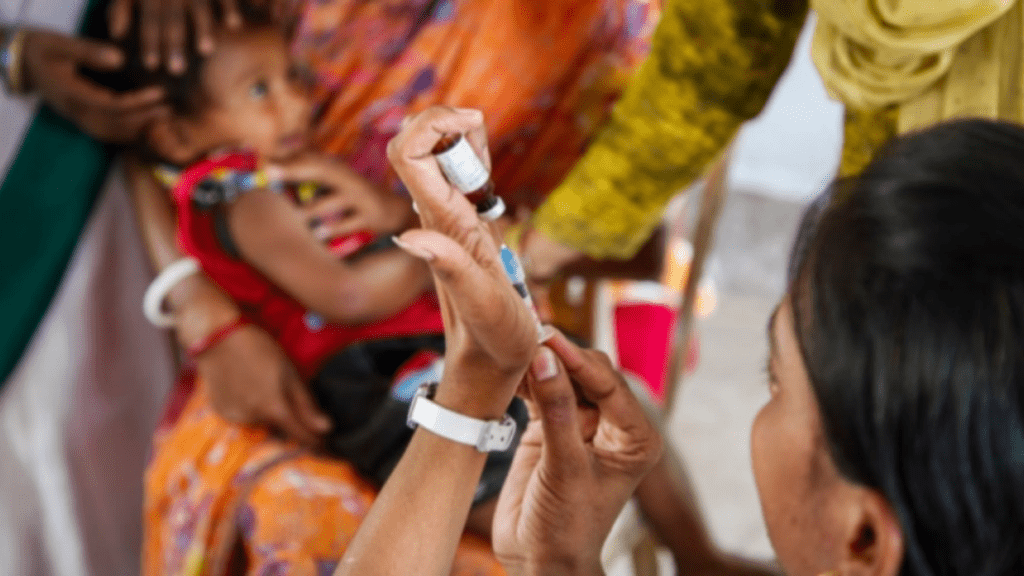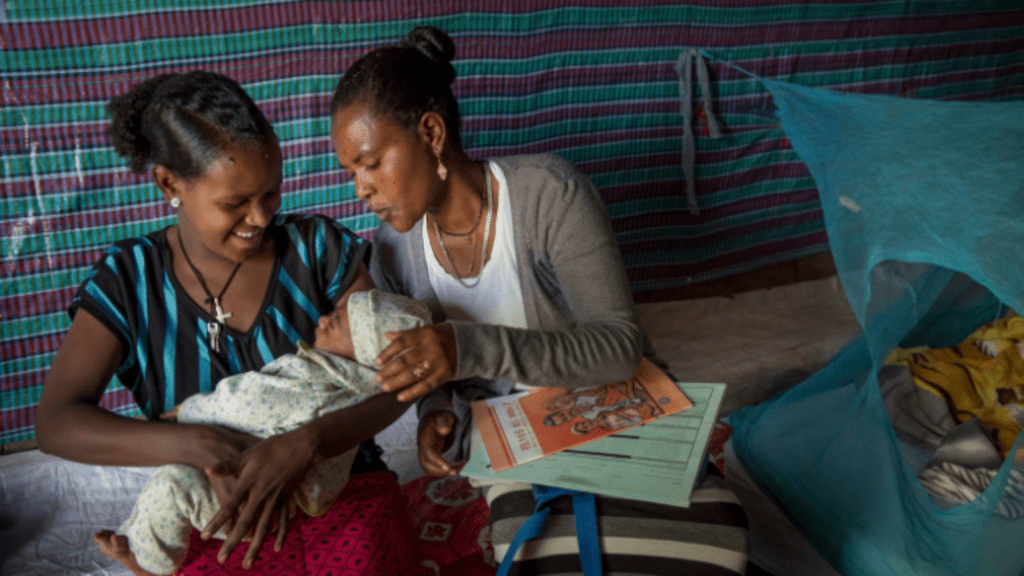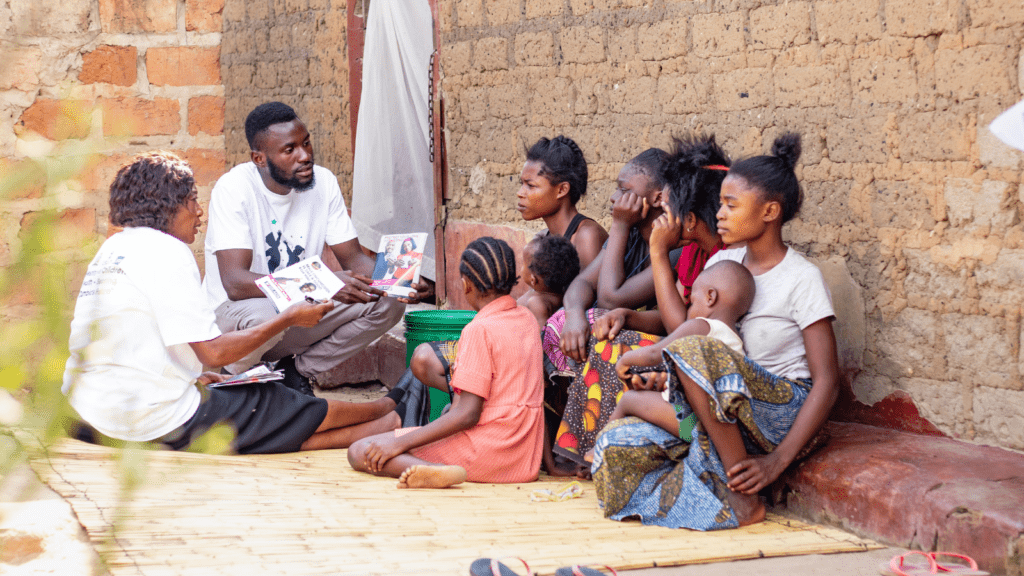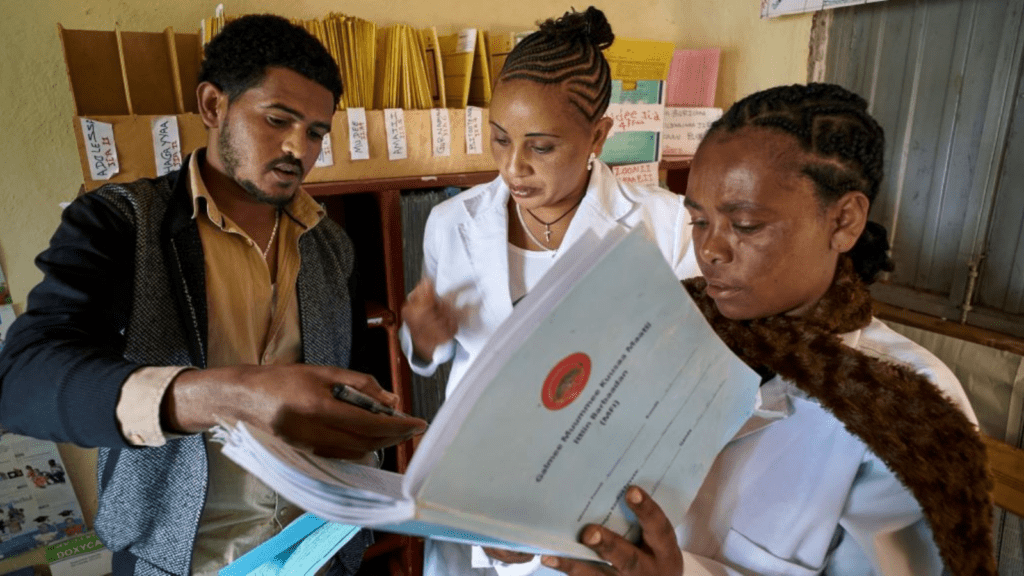This website uses cookies so that we can provide you with the best user experience possible. Cookie information is stored in your browser and performs functions such as recognizing you when you return to our website and helping our team to understand which sections of the website you find most interesting and useful.
Behavior Integration is our proven approach to improve and sustain program outcomes. It defines program outcomes as the behaviors required to achieve a development goal. This ensures that people, and their behaviors, are at the center of program planning and implementation in every phase.
The result is programs that align supply and demand by addressing people’s specific needs for access to quality inputs and services, supportive social and gender norms, and agency or other driving factors. This locally contextualized alignment maximizes resources and accelerates impact, achieving lasting results.
Time to Think | BIG
Think | BIG (Behavior Integration Guidance) is a suite of tools and resources for applying Behavior Integration to development programs. Developed by The Manoff Group (TMG), a JSI company, Think | BIG provides tools and resources to:
- Prioritize behaviors most critical to reach development goals.
- Articulate evidence-based factors that influence each priority behavior at each level: structural, social and internal, applying social and behavioral sciences
- Develop pathways to change each priority behavior, leveraging best practice
- Establish and measure behavioral metrics along the pathways
- Design strategic frameworks and SBC strategies
- Assess progress and adapt program over time based on learning
Behavior Integration, and the Think | BIG suite of tools and resources, uses a whole ecosystem approach to change and sustain these changes in people’s behavior. Aligning the necessary program elements – policies, financing, service delivery, communication, among others – to enable changes in behavior gives us the best chance of achieving our goals.
Why Focus on Behaviors?
Solving development challenges ultimately requires that people do something differently than they’re doing today. These people may be policy makers, community leaders, health providers, market actors and/or family members.
What people do is at the heart of the solution. Ensuring that the right resources are available at the right time, and in the right place, for those people to change, is key to achieving program success.
Working together across disciplines toward common behavioral outcomes maximizes resources on those activities that will make a difference and allows programs to learn and adapt throughout implementation.
Behavior Integration in Action

Kyrgyz Republic Cure Tuberculosis (USAID)
Our SBC strategy focuses on behaviors related to tuberculosis (TB) prevention, detection, and treatment. A significant factor that affects these behaviors is stigma and discrimination. We showcase stories from clients, families, and communities to reduce stigma and discrimination in ways that encourage testing- and treatment-seeking behavior. We also conduct community outreach among key groups and provide community-based support of TB patients, communicate key messages through mass media, social media and youth engagement approaches, and partner with the media to train journalists to report on TB in an accurate and non-stigmatizing way. We work with partners at all levels of the health system to align social and behavior change efforts.

MOMENTUM Routine Immunization Transformation and Equity
The JSI-led consortium works at multiple levels and in alignment with global strategies to help national roll-out of the COVID-19 vaccine in DR Congo, India, Kenya, Mozambique, Niger, and Vietnam. In each of these countries, we support national-level government activities. For example, TMG, a JSI company, in DRC applies Behavior Integration to address mis- and dis-information and increase vaccine demand. Through a systematic analysis, the team identified key partnerships and facilitated co-creation with professional associations, civil society organizations, and faith-based organizations inside and outside of the health sector to scale efforts.

USAID Advancing Nutrition
USAID’s global flagship nutrition project works to strengthen the Agency’s global nutrition investments by assisting USAID Missions and implementing partners to improve nutritional status and health outcomes. To help partners apply Behavior Integration in any phase of the program cycle, we developed a suite of user-friendly SBC tools, tested and refined with partners in five countries. We also prepared a step-wise workbook for program designers to apply Behavior Integration to a critical area of nutrition: young children’s diets and feeding. To support better evaluation, this practical guidance on measuring SBC follows the Behavior Integration approach to support partners who are involved with conducting an evaluation of an activity that uses SBC.

USAID Zambia Accessible Markets for Health (ZAM-Health) Activity
Led by John Snow Health Zambia (JSH) in partnership with JSI, Media 365, and PharmAccess, the USAID ZAM-Health Activity aims to sustainably expand the availability and accessibility of high-quality private sector health products and services to increase the adoption of health and health-seeking behaviors. The project applies Behavior Integration to accelerate progress toward its goals by focusing on priority behaviors throughout program design and implementation. The project uses behavior change approaches that leverage a total market approach to create demand for products such as condoms and modern contraceptive methods and services including cervical cancer screening.

USAID Strengthening Egypt’s Family Planning Program
In Egypt we work with the Ministry of Health and Population (MOHP) to reduce the unmet need of women and men for family planning services and products. Our approach focuses on changing behaviors to increase family planning uptake and strengthening the MOHP’s capacity in its national program and policy formulation. We integrate creative communications activities with private sector engagement and service quality improvement to reach people with the information and services they need to make the right decisions for themselves and their families.

Ethiopia Data Use Partnership
We are examining the barriers and facilitators of digital health systems adoption and data use among health professionals, individuals, and communities in Ethiopia. By using these insights, our SBC strategy will focus on creating pathways that enable behavior change. Our approach will use human-centered design, systems thinking, and applied social and behavioral science to build on current government investments in health information systems and facilitate sustainable, strategic change.

